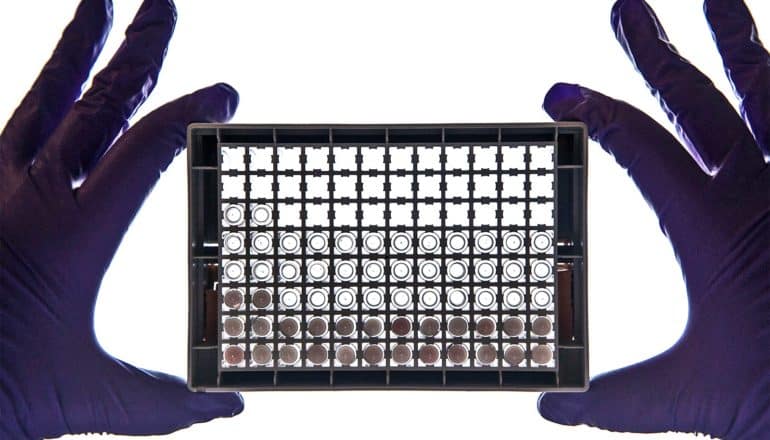
To survive chemotherapy, some cancer cells eat their neighboring tumor cells, a new study shows.
The findings suggest that this act of cannibalism gives the cancer cells the energy they need to stay alive and initiate tumor relapse after the course of treatment is completed.
Chemotherapy drugs such as doxorubicin damage cancer cells’ DNA to kill them, but cells that survive initial treatment can soon give rise to relapsed tumors. This is a particular problem in breast cancers that retain a normal copy of a gene called TP53. Instead of dying in response to chemotherapy-induced DNA damage, these cancer cells generally just stop proliferating and enter a dormant but metabolically active state known as senescence.
In addition to surviving chemotherapy, these senescent cancer cells produce large amounts of inflammatory molecules and other factors that can promote the tumor’s regrowth. Chemotherapy-treated breast cancer patients with normal TP53 genes are therefore prone to relapse and have poor survival rates.
“Understanding the properties of these senescent cancer cells that allow their survival after chemotherapy treatment is extremely important,” says Crystal A. Tonnessen-Murray, a postdoctoral research fellow in James G. Jackson’s laboratory at the Tulane University School of Medicine.
Researchers discovered that, after exposure to doxorubicin or other chemotherapy drugs, breast cancer cells that become senescent frequently engulf neighboring cancer cells. They observed this surprising behavior not only in cancer cells grown in the lab, but also in tumors growing in mice. Lung and bone cancer cells are also capable of engulfing their neighbors after becoming senescent, the researchers discovered.
As reported in the Journal of Cell Biology, senescent cancer cells activate a group of genes that are normally active in white blood cells that engulf invading microbes or cellular debris. After “eating” their neighbors, senescent cancer cells digested them by delivering them to lysosomes, acidic cellular structures that are also highly active in senescent cells.
Senescent cancer cells that engulfed a neighboring cell survived in culture for longer than senescent cancer cells that didn’t. The researchers suspect that consuming their neighbors may provide senescent cancer cells with the energy and materials they need to survive and produce the factors that drive tumor relapse.
“Inhibiting this process may provide new therapeutic opportunities, because we know that it is the breast cancer patients with tumors that undergo TP53-mediated senescence in response to chemotherapy that have poor response and poor survival rates,” Jackson says.
Source: Tulane University
The post Some cancer cells turn cannibal to survive chemotherapy appeared first on Futurity.
from Futurity https://ift.tt/2V6qS3u
No comments:
Post a Comment